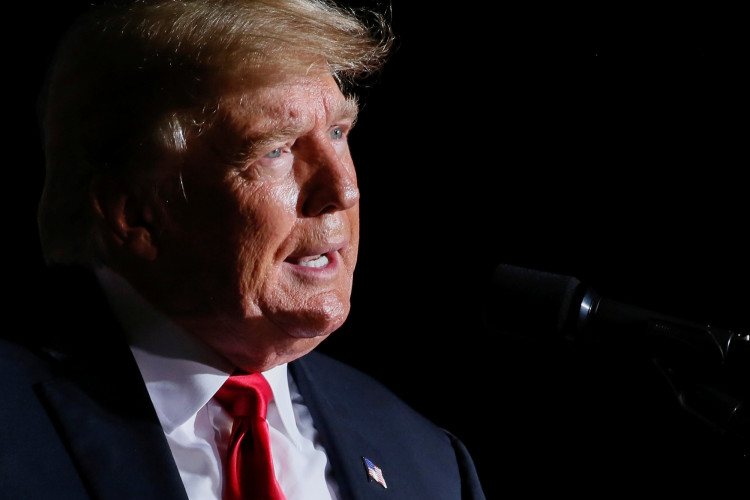Former U.S. President Donald Trump faces a new legal obstacle in his potential return to the White House. On Tuesday, the Colorado Supreme Court ruled 4-3 that Trump is ineligible to run for president in the state's 2024 Republican primary due to his role in the Capitol riot three years ago. This marks the first successful case against Trump's candidacy among several similar lawsuits filed in states like Michigan, Minnesota, Oregon, and New Hampshire, all of which had previously failed.
The impact of the ruling remains to be seen. The decision allows Trump the right to appeal, with the effective date of the judgment suspended until January 4 next year. If the U.S. Supreme Court accepts the case, the suspension will continue until a verdict is reached. Trump's campaign team has indicated they will promptly file an appeal.
The ruling itself is controversial. Colorado's Chief Justice Brian Boatright disagreed with the decision, stating it was premature since Trump has not been criminally convicted and more time is needed to consider the case's complexity.
The ruling is based on the third clause of the Fourteenth Amendment of the U.S. Constitution, which states that individuals who have engaged in insurrection or rebellion are not eligible for public office. However, the application of this clause is disputed in the U.S. legal community, with varying interpretations among judges regarding its applicability to presidential elections.
Before the Colorado Supreme Court's decision, a lower court in Denver had made a partially inconsistent ruling: while acknowledging Trump's involvement in the insurrection, it preserved his right to run for office, arguing that the Constitution does not apply to presidential elections.
Even if this ruling is upheld, without similar actions in other states, Trump's loss is not significant, as he would only miss a few electoral votes that were unlikely to be his. Colorado, with only nine electoral votes and increasingly leaning towards the Democratic Party, is not a major battleground state. Trump lost to Biden by a significant margin in the 2020 election in Colorado.
Trump is believed to have an advantage in a potential U.S. Supreme Court decision. The court has a 6-3 conservative majority, including three justices appointed by Trump. U.S. public opinion suggests that the pressure is now on the Supreme Court to make a final decision on two key issues: whether Trump's actions during the Capitol riot constitute "insurrection" and whether this can lead to his disqualification from running for public office.
The biggest risk for Trump lies in whether other states, especially swing states, will follow Colorado's precedent. If swing state courts subsequently adopt this ruling, it could pose a significant barrier to Trump's White House ambitions.
The Colorado case was brought by the "Citizens for Responsibility and Ethics in Washington" (Crew) on behalf of several Colorado voters. They welcomed the latest ruling and called for other states to follow suit.
The Republican Party has collectively criticized the ruling as politically motivated. Republican House Speaker Johnson called it "an almost unmasked partisan attack," arguing that every registered citizen, regardless of political affiliation, should not be deprived of their rights. The Republican National Committee chair described the latest ruling as "election interference," and their legal team will assist Trump in seeking victory.
Other potential Republican candidates have expressed solidarity with Trump. Several presidential hopefuls have stated that if the ruling is not overturned, they will not participate in the Colorado primary. The state is scheduled to hold its Republican primary on March 5 next year.
Despite legal challenges, Trump maintains a lead in polls. Multiple polls show Trump not only leading in the current Republican primary lineup but also holding his own against Biden. A recent joint poll by Bloomberg showed Trump leading Biden by five percentage points in a head-to-head matchup in seven swing states.
Trump's campaign team believes that given his dominant lead in the polls, "Democrats have lost confidence in Biden's presidency and are paranoid about preventing him from returning to the White House."
As a defendant, Trump has a busy schedule ahead. He faces several criminal and civil lawsuits, including cases related to the 2020 election results, leaked confidential documents, hush money and sexual assault allegations.
A civil fraud trial in New York is ongoing and set to conclude this month. In the new year, a civil case brought by a magazine writer is scheduled for January, with federal election interference trials in Washington D.C. and New York set for March. In May, a federal trial on confidential documents is scheduled in Florida, and an election interference case in Georgia is slated for August.
These trials will coincide with the presidential election schedule, leading up to the final showdown for the 47th U.S. President on November 5.





